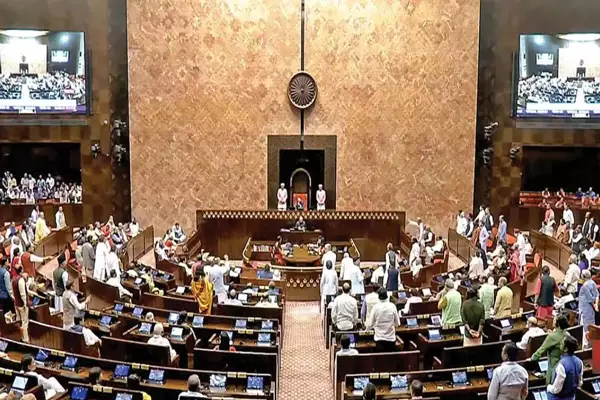As the seats of Opposition Members of Parliament (MPs) increase, the probability of friction between Government vs opposition increases, ultimately affecting the parliamentary proceedings.
Content
- Introduction
- How has the role of the Opposition changed?
- What challenges does the government face with the strengthened Opposition?
- What are the implications of these changes for parliamentary proceedings?
- Conclusion
- Frequently Asked Questions (FAQs)
Introduction
- The Opposition, with 234 seats, has become more assertive, impacting the balance of power.
- The appointment of a new Leader of the Opposition (LoP) signifies a renewed emphasis on parliamentary oversight and engagement.
- The interactions between the Prime Minister and the LoP indicate ongoing political confrontations and challenges.
How has the role of the Opposition changed?
- The Opposition’s assertiveness is backed by their increased number of seats, leading to a more vocal and challenging stance against the government.
- With the new LoP in place after a decade, the Opposition is taking a more active role in addressing national issues and scrutinizing government actions.
- Their tactics include frequent interruptions during government speeches, highlighting a shift towards more confrontational parliamentary proceedings.
What challenges does the government face with the strengthened Opposition?
- The government is perceived as resistant to making concessions, notably in not allocating the deputy speaker’s position to the Opposition, despite it being a point of contention.
- The Prime Minister’s speeches have largely focused on criticizing the Opposition rather than detailing the government’s future agenda.
- The ruling party has not fully acknowledged its reduced majority, affecting its approach to parliamentary strategy.
What are the implications of these changes for parliamentary proceedings?
- Increased friction between the ruling party and the Opposition is likely to impact legislative efficiency.
- Historical practices like disruptions and walkouts continue, reflecting ongoing political and procedural disagreements.
- Expectations are set for a mix of robust debates and contentious interactions, influencing the overall functioning of Parliament.
Conclusion
The developments in the 18th Lok Sabha’s initial session mark a significant shift in the dynamics between the government and the Opposition. The strengthened Opposition has brought more assertive and confrontational engagements, which poses challenges for the government in managing parliamentary proceedings effectively. This session is indicative of a potentially intense period of political engagement and could lead to transformative changes in the workings of parliamentary democracy in the country.
Ref: Source
| UPSC IAS Preparation Resources | |
| Current Affairs Analysis | Topperspedia |
| GS Shots | Simply Explained |
| Daily Flash Cards | Daily Quiz |
Frequently Asked Questions (FAQs)
What major challenges is the government facing with a strengthened Opposition?
The government faces challenges like resistance to making concessions, criticism from the Opposition during speeches, and a reluctance to adapt parliamentary strategies.
What does the term ‘Leader of the Opposition’ (LoP) refer to?
The Leader of the Opposition is the head of the largest political party in Parliament that is not part of the government, responsible for leading the opposition’s parliamentary activities.
What does the term ‘parliamentary oversight’ mean?
Parliamentary oversight refers to the processes and activities through which Parliament monitors and evaluates government operations and policies to ensure accountability and transparency.
What is meant by ‘legislative efficiency’?
Legislative efficiency refers to the effectiveness and speed with which laws are debated, amended, and passed in Parliament, reflecting the body’s overall productivity.



